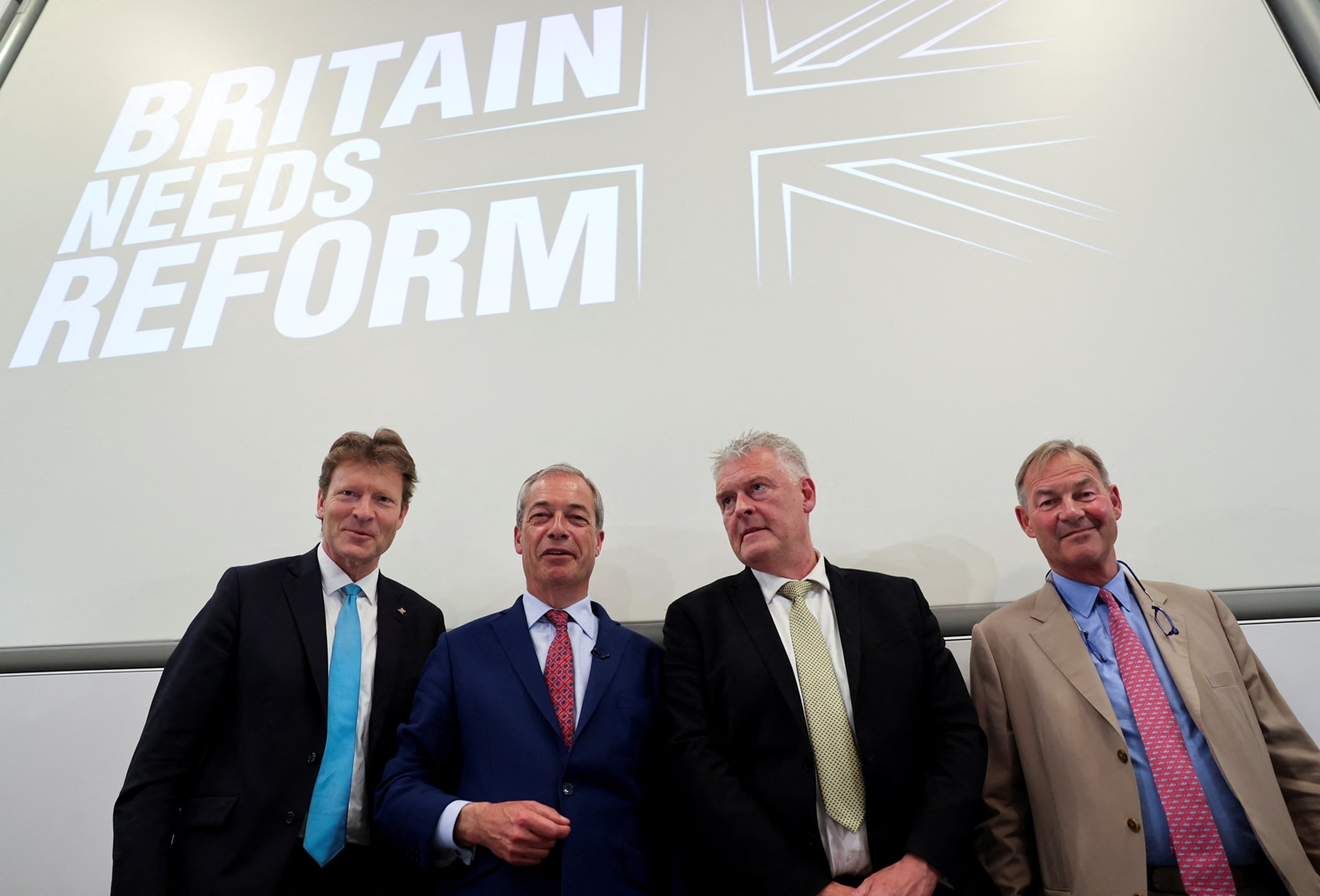The State Of Mental Healthcare: Challenges And Solutions

Table of Contents
Access to Mental Healthcare: A Persistent Barrier
Access to quality mental healthcare remains a significant hurdle for many. Geographic limitations, financial barriers, and pervasive stigma all contribute to this critical issue.
Geographic Limitations: The Rural-Urban Divide
The disparity in access to mental health services is starkly evident when comparing rural and urban areas. Access to care is significantly limited in rural settings, creating a profound mental health disparity.
- Lack of professionals in rural areas: Many rural communities lack sufficient psychiatrists, psychologists, and therapists, leaving residents with limited options for treatment.
- Limited transportation options: Distance and lack of reliable transportation can make it challenging for individuals in rural areas to reach mental health services, even when available.
- Long waiting lists in urban centers: While urban areas may have more professionals, long waiting lists and limited appointment availability often delay or prevent access to timely care. This contributes to the overall inadequacy of access to care.
Telehealth offers a potential solution to bridge the geographic gap and improve rural mental health access.
Financial Barriers: The High Cost of Care
The high cost of mental healthcare presents a significant barrier to affordable mental healthcare. Many individuals face substantial financial burdens, impacting their ability to seek and maintain treatment.
- High cost of treatment: Therapy sessions, psychiatric evaluations, and medication can be expensive, leading to significant financial strain.
- Lack of insurance coverage: Many insurance plans offer limited or inadequate coverage for mental health services, leaving individuals with substantial out-of-pocket expenses.
- Underinsurance: Even with insurance, high deductibles, copays, and limitations on the number of sessions can make treatment unaffordable for many.
- Prescription drug costs: The cost of prescription medications for mental health conditions can be prohibitive, especially for individuals without comprehensive insurance.
These factors contribute significantly to the mental health costs burden experienced by many individuals and families.
Stigma and Discrimination: The Silent Barrier
The societal mental health stigma surrounding mental illness remains a powerful barrier to seeking help. Fear of judgment and discrimination prevents many individuals from accessing necessary care.
- Fear of judgment: Many individuals fear the social stigma associated with mental illness and hesitate to seek help due to potential negative consequences.
- Discrimination in the workplace: Individuals with mental health conditions often face discrimination in the workplace, including limited career advancement opportunities and even job loss.
- Lack of understanding from family and friends: Lack of knowledge and empathy from family and friends can exacerbate the stigma and discourage individuals from seeking professional help.
Overcoming mental health stigma and promoting social acceptance are crucial for improving access to mental healthcare.
Quality of Mental Healthcare Services: Addressing Gaps
Even when access is possible, the quality of mental healthcare services varies significantly, creating additional challenges.
Shortage of Mental Health Professionals: A Critical Gap
A critical shortage of qualified mental health professionals, particularly in underserved areas, limits the availability of care. Therapist shortage and psychiatrist shortage are particularly acute.
- Insufficient training programs: The number of training programs for mental health professionals often fails to meet the growing demand.
- Burnout among professionals: High caseloads, demanding work conditions, and limited resources contribute to high rates of burnout among mental health professionals.
- Unequal distribution of mental health professionals: Mental health professionals are often concentrated in urban areas, leaving rural and underserved communities with limited access. This impacts the overall mental health workforce.
Addressing the mental health workforce crisis is vital for improving the quality of care.
Inadequate Treatment Options: Gaps in Effectiveness and Availability
Limitations in the availability and effectiveness of treatments also impact the quality of mental healthcare.
- Long waiting lists for specialized treatments: Access to specialized treatments, such as intensive therapies or medication management, is often delayed due to long waiting lists.
- Lack of access to innovative therapies: Many individuals lack access to newer, evidence-based treatments due to cost, limited availability, or lack of provider training.
- Limited research funding: Insufficient funding for mental health research hinders the development and implementation of effective treatments. This undermines the development of evidence-based treatments and innovative therapies.
Increased investment in mental health research is crucial for improving treatment effectiveness.
Integration of Mental and Physical Healthcare: A Holistic Approach
Better integration of mental and physical healthcare is essential for improving overall patient well-being. A more holistic approach to healthcare is needed.
- Improved communication between healthcare providers: Better communication and collaboration between primary care physicians and mental health professionals are essential for coordinating care.
- Holistic approach to treatment: A holistic approach considers both mental and physical health needs, recognizing the interconnectedness of overall well-being.
- Coordinated care plans: Developing coordinated care plans that address both mental and physical health needs can improve treatment outcomes.
This improved integrated care is vital for a more complete physical and mental health approach.
Potential Solutions for Improving Mental Healthcare
Addressing the challenges requires a multifaceted approach involving several key strategies.
Expanding Access to Telehealth: Bridging the Gap
Telehealth mental health services, including online therapy and virtual therapy, offer significant potential for expanding access to care, particularly in underserved areas.
- Increased accessibility: Telehealth removes geographical barriers, making mental health services more accessible to individuals in rural and remote areas.
- Reduced travel costs: Telehealth eliminates the need for travel, reducing transportation costs and making care more affordable.
- Convenience for patients: Telehealth offers greater convenience and flexibility, allowing patients to access services from the comfort of their own homes.
Remote mental healthcare through telehealth platforms is a vital component of expanding access to care.
Investing in Mental Health Workforce Development: Building Capacity
Investing in mental health workforce development is crucial for addressing the shortage of professionals.
- Increased funding for training programs: Increased funding is necessary to expand training programs and increase the number of mental health professionals.
- Loan forgiveness programs: Loan forgiveness programs can incentivize individuals to pursue careers in mental health, particularly in underserved areas.
- Improved working conditions: Addressing issues such as burnout and workload can improve retention rates and attract more professionals to the field.
This will strengthen the mental health professionals pool, improving the mental health workforce.
Addressing Stigma Through Education and Awareness Campaigns: Changing Perceptions
Mental health awareness campaigns play a vital role in reducing stigma.
- Public awareness campaigns: Public awareness campaigns can help educate the public about mental health conditions and reduce stigma.
- Educational programs in schools: Educating children and young adults about mental health can help reduce stigma and promote early help-seeking behaviors.
- Community outreach initiatives: Community-based programs can raise awareness and provide support to individuals and families affected by mental illness.
These public health campaigns can significantly influence stigma reduction.
Policy Changes to Improve Affordability and Access: Legislative Action
Policy changes are essential for ensuring affordable mental healthcare for all.
- Expanding insurance coverage: Expanding insurance coverage to include comprehensive mental health benefits is critical.
- Increasing funding for mental health services: Increased government funding for mental health services is needed to expand access and improve quality of care.
- Implementing parity laws: Implementing and enforcing parity laws, which mandate equal coverage for mental and physical healthcare, are essential.
These mental health policy changes are critical to achieving healthcare reform.
Conclusion
The state of mental healthcare faces significant challenges, including limited access, inadequate quality of services, and persistent stigma. Addressing these challenges requires a comprehensive strategy involving improved access to telehealth, investment in workforce development, targeted stigma reduction campaigns, and supportive policy changes. Improving the state of mental healthcare requires a collective effort. Let's work together to ensure everyone has access to the quality mental health services and mental wellness they deserve. Advocate for better mental health policy, support mental health organizations, and encourage open conversations about mental health.

Featured Posts
-
 School Desegregation Doj Action And Its Broader Consequences
May 03, 2025
School Desegregation Doj Action And Its Broader Consequences
May 03, 2025 -
 Pm Modis France Visit Key Highlights Ai Summit And Business Engagement
May 03, 2025
Pm Modis France Visit Key Highlights Ai Summit And Business Engagement
May 03, 2025 -
 Tensions Au Diner Sardou Critique Macron Ca Vient Du Ventre
May 03, 2025
Tensions Au Diner Sardou Critique Macron Ca Vient Du Ventre
May 03, 2025 -
 Christina Aguilera New Photoshoot Sparks Debate Over Excessive Photo Editing
May 03, 2025
Christina Aguilera New Photoshoot Sparks Debate Over Excessive Photo Editing
May 03, 2025 -
 Reform Party Leadership Why Farage Should Step Aside For Rupert Lowe
May 03, 2025
Reform Party Leadership Why Farage Should Step Aside For Rupert Lowe
May 03, 2025
